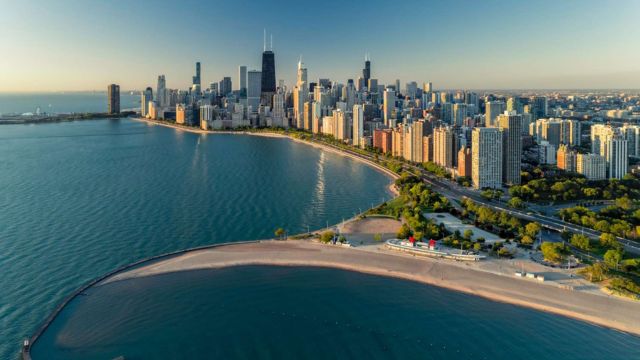Chicago, situated in northeast Illinois, boasts a population of approximately 2.7 million residents. Renowned for its architecture, culture, sports, and cuisine, the city also grapples with a dark reality—it holds the highest human trafficking rate among the 100 most populous cities in the nation, according to the latest White House data. This blog delves into the causes and repercussions of Chicago’s human trafficking issue and explores potential solutions.
The Reasons
Chicago’s status as the nation’s human trafficking capital stems from a complex interplay of factors:
Location and accessibility: As the third-largest and most populous city in the nation, Chicago’s extensive network of interstate highways, railways, airports, and ports makes it an attractive hub for human traffickers. The city serves as a strategic gateway for distributing victims to various parts of the country and the world.
Demand and supply: High demand for commercial sex and inexpensive labor in Chicago is fueled by factors such as poverty, unemployment, homelessness, and tourism. The city’s diverse victim pool is sourced domestically and internationally, with sex trafficking and labor trafficking being the predominant forms, as outlined in the report.
Gangs and violence: Chicago grapples with a significant gang problem, estimating around 100,000 gang members in the city. These gangs are involved not only in human trafficking but also in other criminal activities such as drug trafficking, robbery, and murder. The city’s elevated levels of violence, with 769 homicides and 3,261 shootings in 2020, often result from disputes and turf wars related to human trafficking.
The Consequences
The prevalence of human trafficking in Chicago exacts a devastating toll on victims, their families, and the community at large, leading to:
Physical and mental health: Human trafficking poses severe threats to physical and mental health, contributing to abuse, exploitation, injury, disease, and even death. Chicago recorded the highest number of human trafficking fatalities in the nation in 2020, with 333 deaths, primarily involving sex trafficking, particularly minors.
Social and economic well-being: Human trafficking undermines the social and economic well-being of victims, impacting their quality of life, education, employment, and income. Additionally, it fosters a climate of fear, distrust, and insecurity, hindering social cohesion and economic development in the community.
Justice and human rights: Human trafficking constitutes a violation of victims’ human rights and dignity, posing challenges to justice and democracy. It fosters corruption, money laundering, and terrorism, eroding the rule of law and public confidence in authorities.
The Solutions
Addressing Chicago’s human trafficking problem necessitates comprehensive and sustained efforts, including:
Prevention and education: Raising awareness, altering attitudes, and mitigating risk factors involve implementing comprehensive human trafficking prevention programs, promoting human dignity and respect, and engaging youth and community leaders as role models and mentors.
Protection and support: Ensuring the safety, health, and well-being of victims and their families requires providing emergency services, medical care, counseling, legal aid, and shelter. Strengthening reporting and response mechanisms, along with enhancing coordination among different agencies and sectors, is crucial.
Prosecution and accountability: Ensuring justice and deterrence for human trafficking and related crimes involves improving the investigation and prosecution of cases, increasing the seizure and destruction of assets and evidence, and fostering collaboration among local, state, federal, and international agencies and partners.
The Conclusion
Chicago’s human trafficking challenge demands urgent and comprehensive action, extending beyond crime and justice to encompass health, education, development, and human rights. It is a pervasive issue affecting not only victims but the entire city and society. Overcoming this problem requires collective efforts, marked by courage, compassion, and unwavering commitment to creating a safer, healthier, and more prosperous Chicago for all.

